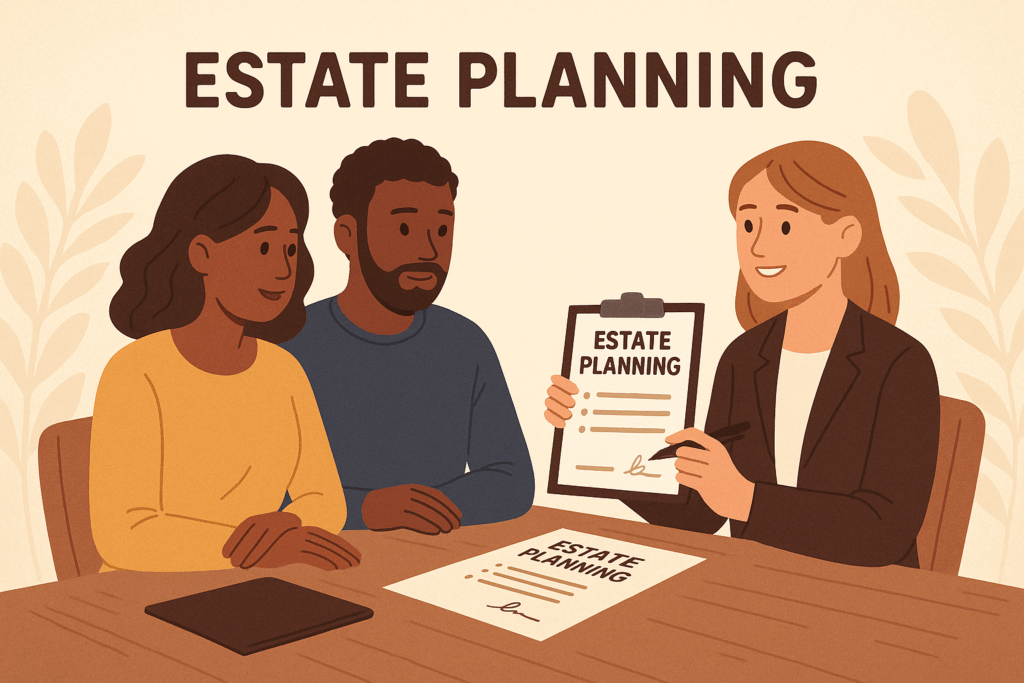Hung Le, JM, LDA
When people think about estate planning, they often imagine it’s something only the wealthy need to worry about. In reality, estate planning is for everyone—regardless of income, assets, or age. Whether you’re a parent, a homeowner, a business owner, or simply someone who wants to make sure your loved ones are cared for after you’re gone, estate planning is a critical step in safeguarding your future.
What Is Estate Planning?
Estate planning is the process of legally arranging how your assets—such as real estate, bank accounts, investments, personal belongings, and even digital assets—will be managed and distributed after your death or incapacitation. A complete estate plan typically includes:
- A Will
- A Revocable Living Trust
- Powers of Attorney (for healthcare and finances)
- Advance Health Care Directives
- Beneficiary Designations
- And sometimes, Guardianship Designations for minor children
Why Estate Planning Matters
1. Avoids Probate
Probate is the court-supervised process of distributing your assets. It can be time-consuming, expensive, and public. With proper planning—such as a trust—you can avoid or minimize probate and ensure your heirs receive their inheritance without unnecessary delays.
2. Protects Your Loved Ones
Estate planning allows you to designate guardians for your children, provide for dependents with special needs, and ensure your spouse or partner is financially supported. Without a plan, the court decides who gets what, often causing stress and family disputes.
3. Minimizes Taxes and Legal Fees
Strategically planned estates can reduce estate taxes, income taxes, and legal costs, helping your heirs keep more of what you’ve worked so hard to earn.
4. Preserves Family Harmony
Having clear, written instructions for how your estate should be managed avoids misunderstandings and reduces the risk of family conflict, which is especially important in blended families or when distributing high-value or sentimental assets.
5. Protects You During Incapacity
Estate planning isn’t just for death—it’s also for life. If you become incapacitated due to illness or injury, a properly executed Power of Attorney and Advance Directive ensures that someone you trust can manage your medical care and finances on your behalf.
6. Plans for Digital and Global Assets
Today’s modern estates often include digital assets (social media, crypto, digital vaults) and even international holdings. Without guidance, these can be lost or mishandled. Estate planning brings clarity and structure to managing all your assets—physical and digital.
Who Needs Estate Planning?
- Young families who want to appoint guardians and secure their children’s future
- Homeowners who want to avoid probate on real estate
- Business owners who need succession plans
- Blended families who wish to clarify inheritances
- Retirees looking to preserve wealth and minimize taxes
- Single adults who want their healthcare decisions respected
Getting Started
Estate planning may sound overwhelming, but it doesn’t have to be. Working with a qualified estate planning professional or legal document assistant can help you:
- Identify your goals
- Understand your assets and liabilities
- Draft customized documents tailored to your needs
- Ensure compliance with local and federal laws
Conclusion
Estate planning is not just about distributing assets—it’s about peace of mind. It’s about making sure your wishes are honored, your family is protected, and your legacy is preserved. Don’t wait for a life event to remind you of its importance. Start your estate planning today and take control of your future.
